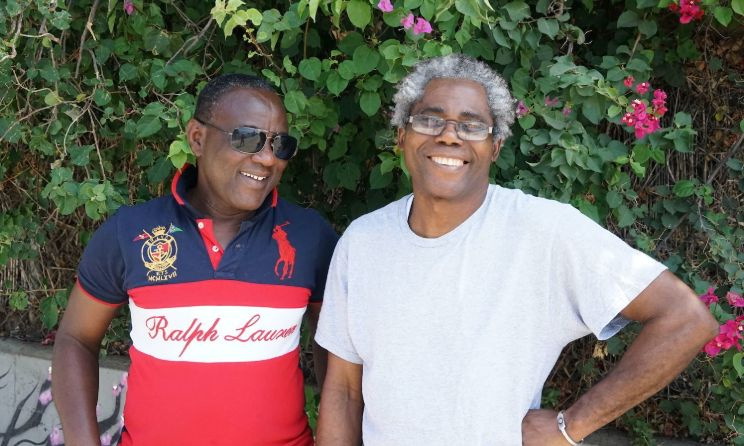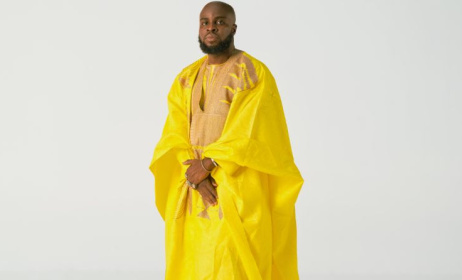Ivory Coast: Jess Sah Bi returns to the limelight with album reissue
Ivorian singer Jess Sah Bi returns to the spotlight with a reissue of his long out-of-print solo album Jesus-Christ Ne Déçoit Pas, originally released in the 1990s.
 Peter One and Jess Sah Bi.
Peter One and Jess Sah Bi.
The remastered album, first released on cassette in 1991, will be available on all digital platforms from 18 April, via the US-based label Awesome Tapes From Africa (ATFA).
Announcing the forthcoming reissue, ATFA described it as “an ethereal and beautiful thank-you to the heavens, after Jess Sah Bi’s survival of a grave illness.” The release marks the beginning of a new series by the label, focusing on African devotional music.
In the 1980s, Abidjan-born Jess Sah Bi joined forces with fellow Ivorian and long-time collaborator Peter One to form the duo Jess Sah Bi & Peter One. They quickly became one of the most celebrated and in-demand acts, not only in Côte d’Ivoire but across West Africa, eventually performing to stadium-sized crowds in their homeland as well as in Benin, Burkina Faso, and Togo.
Though already popular on radio and television, it was their debut album Our Garden Needs Its Flowers, recorded and released in 1985, that catapulted them to stardom.
In contrast to the dominant funk, disco, and reggae styles of the time, Our Garden Needs Its Flowers offered a rich fusion of traditional Ivorian village songs with American and British country and folk-rock. The pair sang in French, English, and Gouro, their local language, delivering harmonised meditations on social injustice, inequality, and calls for unity across Africa, as well as tributes to women, all set to layered guitar riffs, rustic harmonica, and feel-good rhythms.
Surprisingly, this reissue marks the first time the album has been released in high-fidelity, legally licensed form, courtesy of ATFA.
Jess and Peter both recall their shared musical upbringing, inspired by traditional songs they heard their mothers sing in their respective hometowns of Barata and Ono. Another key influence came via the radio in the early 1970s, when imported country and folk-rock music sparked their imagination.
Jess remembers DJs playing Kenny Rogers, Don Williams, and Dolly Parton during morning radio shows, while Peter recalls being heavily influenced by Simon & Garfunkel, Cat Stevens, Crosby, Stills & Nash, and Creedence Clearwater Revival. Although country and folk-rock music weren’t widely embraced by the general public at the time, interest was growing among students, who related to the protest themes in English and American folk songs and appreciated the distinctive sound.
“It’s very nice music, with very nice harmonies, and it’s different from what you hear every day,” said Peter, adding, “The language was a big barrier though. You had to learn English to understand the songs, and the students were the ones learning English.”
With access to education and a growing awareness of social and political injustice, students formed the ideal audience for folk-inspired music in Côte d’Ivoire during that period.



































Comments
Log in or register to post comments